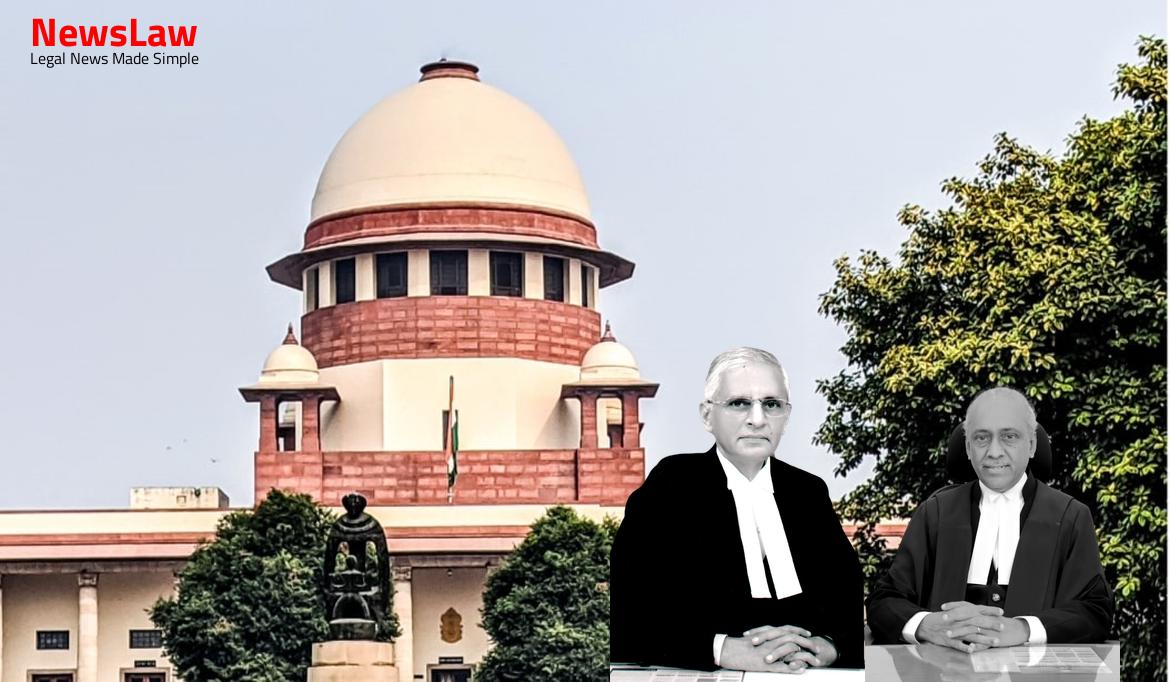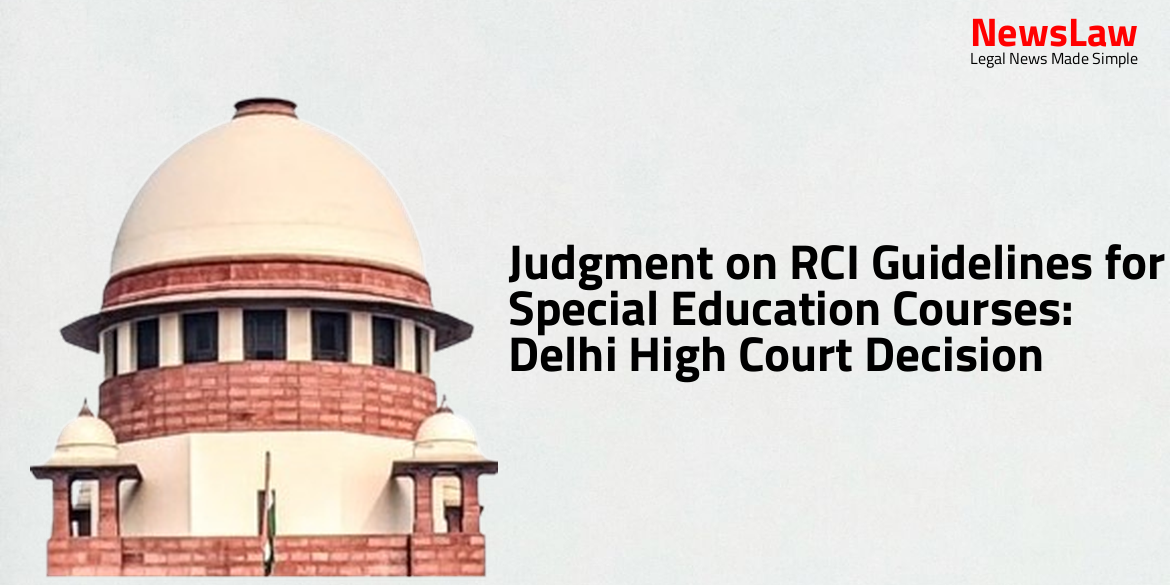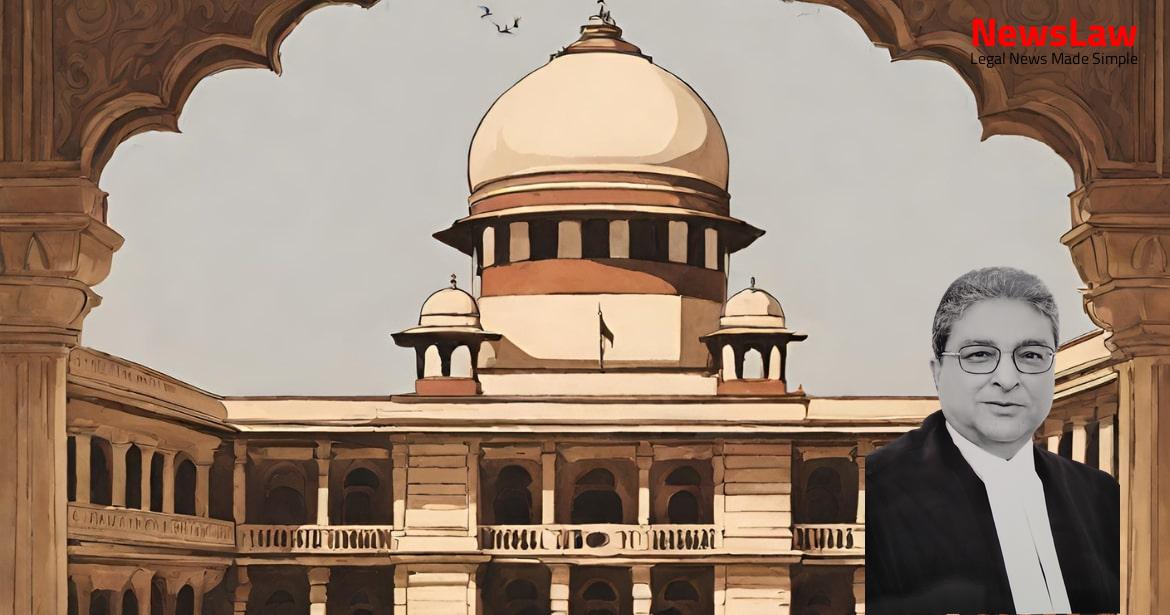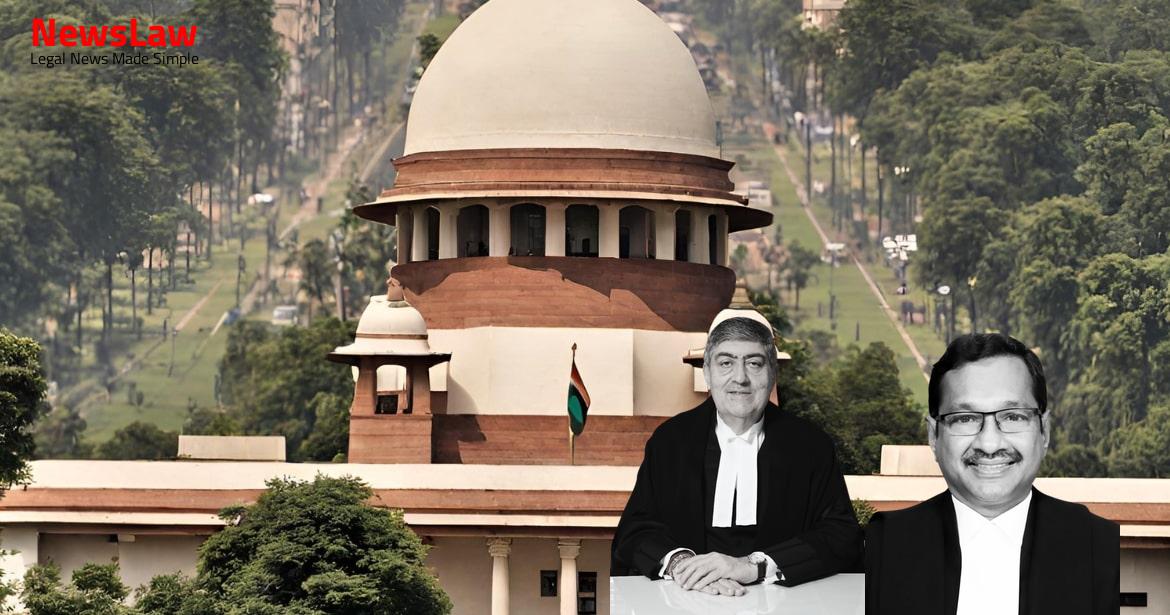Explore the detailed legal analysis conducted by the court in a recent case regarding the dismissal of an election petition. The examination of verification requirements, implications of defects in pleadings, and consequences of disqualification offer a comprehensive understanding of the intricate legal procedures involved. Delve into the complexities of election law and procedural nuances with this insightful review.
Facts
- The petitioner filed Election Petition No.4 of 2019 after the elections, challenging the rejection of her nomination in the Ernakulam Constituency.
- She argued that her nomination was accepted in the Amethi Constituency despite similar disclosures of her conviction and pending appeals.
- The petitioner also filed in Wayanad Constituency with the same outcome of rejection for the same reasons.
- Convicted in two criminal cases with a 3-year imprisonment term each, the petitioner’s sentence was suspended but not the convictions.
- The petitioner contended that suspension of sentence by appellate/revisional court is sufficient, and not suspension of conviction.
- Multiple petitions and appeals were filed by the petitioner against the rejection of nominations, but faced dismissal for various reasons.
- Despite petitions and appeals, the petitioner’s nominations were rejected, leading to further legal actions and court proceedings.
- The Writ Petition filed by the petitioner in this regard was also dismissed on 09.04.2019.
- The High Court framed a preliminary issue on 01.10.2019 regarding the maintainability of the election petitions due to the petitioner’s conviction not being suspended in appeal or revision.
Also Read: Authority of University Syndicate in Affiliation Matters
Issue
- The High Court examined two grounds for the petitioner’s case
- The first ground was that the document contained incurable defects
- The second ground was that the petitioner had admitted to a disqualification
- The correctness of these findings were reviewed
Also Read: Legal Analysis on Withdrawal from Land Acquisition
Analysis
- The High Court deemed the petitioner to have malafide intentions to tarnish the reputation of third parties through the election petition, which lacked proper verification and prayer.
- The court found that even a defective affidavit can be curable, as seen in the case of G.M. Siddeshwar.
- The question of whether an election petition not meeting the requirements of Section 83 can be dismissed at the pre-trial stage under section 86(1) has been repeatedly considered.
- The Rules do not empower the Judge to dismiss a petition without giving the petitioner an opportunity to rectify the defects.
- The High Court’s procedure in Kerala for handling election petitions was deemed unacceptable.
- The court should not have dismissed the petition upfront for defects like imperfect verification, as they are curable.
- The judgment regards the date of conviction as the starting point for disqualification, which lasts for six years after release.
- The High Court’s decision to consider defects in verification and prayer as incurable was incorrect.
- The rules governing election petition presentation and trial are elaborated upon in Chapter-II and III of the Act.
- The Court should have allowed the petitioner a chance to rectify defects in verification before dismissing the petition.
- The suspension of sentence does not annul disqualification as per Section 8(3) of the Act.
- Section 83(1)(c) mandates that an election petition shall be signed and verified in the manner laid down in the Code of Civil Procedure for verification of pleadings.
- There is an exception provided in the proviso where a party is unable to sign the pleading, it may be signed by a duly authorized person.
- Order VI, Rule 14 states that every pleading shall be signed by the party or his pleader, with provisions for signing by an authorized person in case of absence or good cause.
- Order VI, Rule 15 outlines the verification of pleadings, requiring verification by the party or someone acquainted with the facts of the case.
- Section 84 allows for specific relief to be claimed in an election petition.
- The High Court is required to follow the procedure applicable to the trial of suits under the Code of Civil Procedure in the trial of election petitions.
- Indian Evidence Act provisions are applicable to the trial of election petitions.
- Section 81(3) mandates that every election petition be accompanied by copies attested by the petitioner.
- Section 83 details the contents, signature, and verification requirements of an election petition.
- Section 86(1) obliges the High Court to dismiss an election petition that does not comply with specified provisions.
- Defective verification of an affidavit may not be fatal when alleged in an election petition involving corrupt practices.
- Compliance with Section 83 should be ensured before parties go to trial in an election petition.
- Consequences of a defective affidavit are to be judged at the trial of an election petition.
- Section 86(1) of the Act may not be attracted to cases of allegedly defective affidavits.
- Defective verification is considered curable in election petition cases.
- Suspension of sentence does not alter disqualification under Section 8(3) of the Act.
- Section 8(4) protection for sitting members against removal during appeal or revision was upheld.
- Challenges to Section 8(4) were rejected in B.R. Kapur and Lily Thomas cases.
- Appellate Court can stay conviction and sentence under Section 389(1) of the Code of Criminal Procedure.
- Judge of an elected position cannot use Article 164 if disqualified from contesting elections.
- Compliance with Section 83 of the Act is not mandatory unless integral to the petition under Section 81.
- Defect in verification of affidavit is curable and does not warrant dismissal of an election petition.
- Failure to comply with the proviso to Section 83(1) does not justify dismissal of an election petition under Section 86(1).
- Non-compliance with Section 83 does not attract consequences under Section 86(1) of the Act.
- Absence of proper verification may leave an election petition incomplete, but the defect is curable.
- Defect in affidavit verification is not fatal to the maintainability of the petition.
- Requirement of filing an affidavit in terms of Order VI Rule 15(4) of the Code was clarified in G.M. Siddeshwar vs. Prasanna Kumar case.
- The petitioner was disqualified from contesting elections as per Section 8(3) of the Act.
- The High Court was justified in not proceeding with the election petition as the petitioner was disqualified.
- The rejection of the election petition based on incurable defects was incorrect, but the dismissal of the Special Leave Petition stands.
- The error of the Returning Officer in Amethi Constituency does not entitle the petitioner to claim estoppel against statutory provisions.
- The petitioner’s failure to obtain a stay of conviction resulted in the valid rejection of her nominations.
- The disqualification under Section 8(3) continues until a stay of conviction is obtained.
Also Read: Legal Analysis in Petition Transfer Case
Decision
- There will be no order as to costs.
Case Title: SARITHA S. NAIR Vs. HIBI EDEN (2020 INSC 693)
Case Number: SLP(C) No.-010678 / 2020



